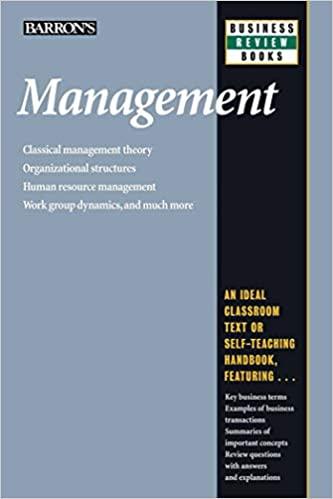Answered step by step
Verified Expert Solution
Question
1 Approved Answer
Overview TNK - BP is a joint venture ( JV ) company that is 5 0 % owned by the AAR consortium, which represents three
Overview
TNKBP is a joint venture JV company that is owned by the AAR consortium, which represents three major Russian business groups: Alfa, Access, and Renova. Founded in TNKBP is a major oil company. It is Russias third largest oil producer and among the ten largest private oil companies in the world. It produces almost million barrels of oil every day and provides about of BPs oil production and of its reserves. It pays about $ billion dividend each year to BP Despite being a cash cow, TNK shares an uneasy relationship with BP
Two episodes have been cited by TNK to emphasize their unhappiness with BP In the Russian partners publicly aired two grievances. First, TNKBP relied on too many BPs expatriate expat consultants, whose fees were a rip offextra dividends to BP but excessive costs to TNKBP Second, and more importantly, the Russians wanted TNKBP to pursue opportunities outside of Russia and Ukraine, but BP insisted on fencing TNKBP within Russia and Ukraine to prevent TNKBP from becoming a global competitor.
This disagreement led to a number of unpleasant episodes. The visas of expats working at TNKBP were declared invalid. The Moscow offices of both BP and TNKBP were raided by the policy and a TNKBP manager was arrested for alleged espionage. According to Fridman founder of the Alfa Group and chairman of the board of TNKBP this entire fiasco could be attributed to BP and thOverview
TNKBP is a joint venture JV company that is owned by the AAR consortium, which represents three major Russian business groups: Alfa, Access, and Renova. Founded in TNKBP is a major oil company. It is Russias third largest oil producer and among the ten largest private oil companies in the world. It produces almost million barrels of oil every day and provides about of BPs oil production and of its reserves. It pays about $ billion dividend each year to BP Despite being a cash cow, TNK shares an uneasy relationship with BP
Two episodes have been cited by TNK to emphasize their unhappiness with BP In the Russian partners publicly aired two grievances. First, TNKBP relied on too many BPs expatriate expat consultants, whose fees were a rip offextra dividends to BP but excessive costs to TNKBP Second, and more importantly, the Russians wanted TNKBP to pursue opportunities outside of Russia and Ukraine, but BP insisted on fencing TNKBP within Russia and Ukraine to prevent TNKBP from becoming a global competitor.
This disagreement led to a number of unpleasant episodes. The visas of expats working at TNKBP were declared invalid. The Moscow offices of both BP and TNKBP were raided by the policy and a TNKBP manager was arrested for alleged espionage. According to Fridman founder of the Alfa Group and chairman of the board of TNKBP this entire fiasco could be attributed to BP and that BP treated TNKBP as if it were a wholly owned subsidiary instead of a JV In the end, a compromise was arrived between the two warring companiesthe Russians needed BPs expertise and BP needed to access TNKBPs crude oil in Siberia.
The second episode took place only two months after the ending of the first one. In January BP announced a new $ billion strategic alliance with Russias stateowned Rosneft. Creating the first crossshareholding alliance between international and Russian oil companies, the deal would enable BP to own of Rosnefts shares and Rosneft to own of BPs shares. Both sides would jointly explore a new offshore oil field on the Russian Arctic continental shelf in the Kara Sea. Rosneft is Russias second largest oil company, which produces million barrels of oil a day. This new alliance had the full support of the Russian government but not TNKBPs who sought to block the deal. Their argument was that per the TNKBP JV agreement, BP could only pursue further business in Russia through their JV
AARs claim was vindicated by a Swedish arbitration tribunal and BP admitted its mistake and reaffirmed that it remained committed to TNKBP as its primary business vehicle in Russia. But BPs problems did not abate. Through this exercise it managed to alienate both the Russian government and Rosneft which struck a new alliance with Exxon Mobil.
BP weakened by the second episode, continues to share an uneasy relationship with TNKBP which managed to gain more power than its partner.
Questions:
From an industrybased view, explain why alliances are a frequent mode of entry for the oil industry in Russia.
From a resourcebased view, what are the complementary resources and capabilities both sides brought to TNKBP
From an institutionbased view, what are the formal and informal rules of the game governing this industry in Russia?
As an ethics consultant to BP how would you advise it during both episodes of the conflicts with AAR Use the first person for this question.
Step by Step Solution
There are 3 Steps involved in it
Step: 1

Get Instant Access to Expert-Tailored Solutions
See step-by-step solutions with expert insights and AI powered tools for academic success
Step: 2

Step: 3

Ace Your Homework with AI
Get the answers you need in no time with our AI-driven, step-by-step assistance
Get Started


